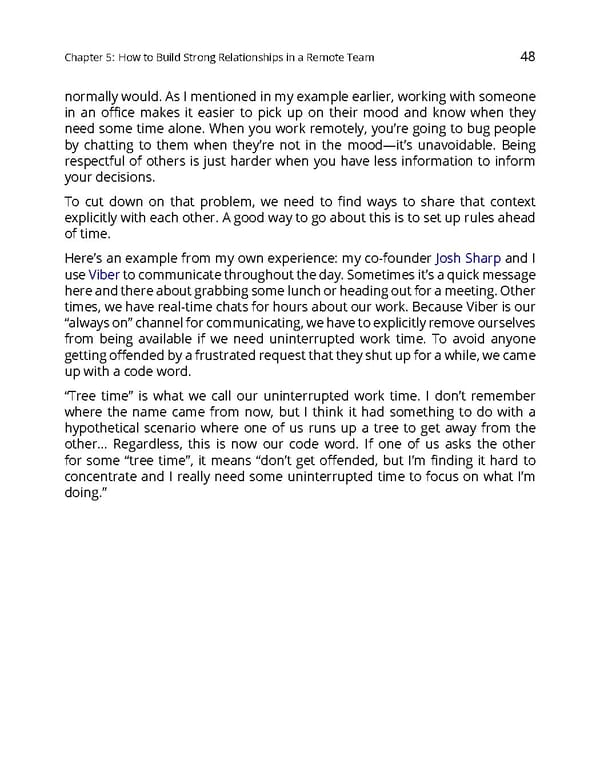Chapter5: HowtoBuildStrongRelationshipsinaRemoteTeam 48 normallywould.AsImentionedinmyexampleearlier,workingwithsomeone in an office makes it easier to pick up on their mood and know when they need some time alone. When you work remotely, you’re going to bug people by chatting to them when they’re not in the mood—it’s unavoidable. Being respectful of others is just harder when you have less information to inform yourdecisions. To cut down on that problem, we need to find ways to share that context explicitly with each other. A good way to go about this is to set up rules ahead of time. Here’s an example from my own experience: my co-founder Josh Sharp and I useVibertocommunicatethroughouttheday.Sometimesit’saquickmessage hereandthereaboutgrabbingsomelunchorheadingoutforameeting.Other times, we have real-time chats for hours about our work. Because Viber is our “alwayson”channelforcommunicating,wehavetoexplicitlyremoveourselves from being available if we need uninterrupted work time. To avoid anyone gettingoffendedbyafrustratedrequestthattheyshutupforawhile,wecame upwithacodeword. “Tree time” is what we call our uninterrupted work time. I don’t remember where the name came from now, but I think it had something to do with a hypothetical scenario where one of us runs up a tree to get away from the other… Regardless, this is now our code word. If one of us asks the other for some “tree time”, it means “don’t get offended, but I’m finding it hard to concentrate and I really need some uninterrupted time to focus on what I’m doing.”
 The Ultimate Guide to Remote Work Page 51 Page 53
The Ultimate Guide to Remote Work Page 51 Page 53